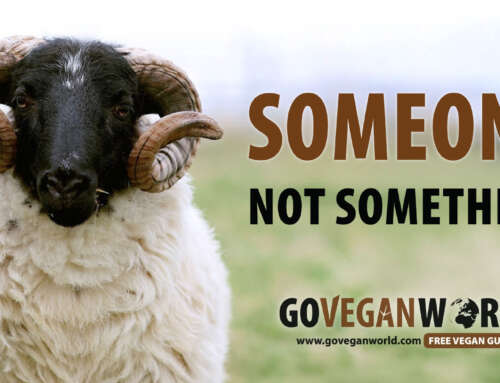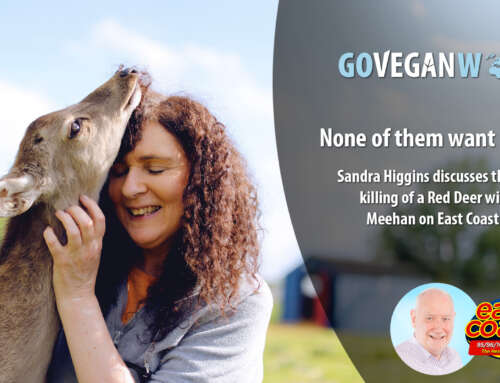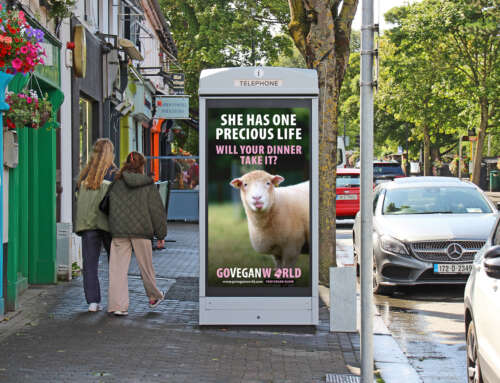The NFU (National Farmers Union) recently published the results of a YouGov poll assessing the effects of the Go Vegan World campaign. The article, published by Jack Yates in Farmers Weekly on 27 April last, attributes a rise in the number of people who would consider going vegan from 1% to 7%. Given that Go Vegan World is a unique campaign in a pioneering movement, this is quite a success.
However, the NFI persists in misunderstanding the ethos and aim of Go Vegan World. In particular, it equates Go Vegan World’s pro-animal stance with anti-farming. Go Vegan World has always supported farmers. It is against the use of other animals for human ends, particularly their use in animal agriculture. That is quite different from being against farming or farmers. The very fact that the campaign is directed at the individual consumer demonstrates where it believes the responsibility for change lies.
The challenge of the campaign is for the public to become educated on the rationale and ease of living vegan, as well as its benefits in terms of human health, the environment and other related social justice issues such as food security and workers’ rights. This challenge demands the complete cessation of animal use. It cannot, as the NFI persists in asserting, be answered with reference to the regulation of exploitation through welfare measures. A growing number of people have been exposed to the campaign and have gained insight into the injustice of animal use at many levels, foremost of which is the injustice of one species breeding and killing individual members of other species. Referring to those individuals in terms of traceability, the “food chain” or suggesting that labels such as the Red Tractor protect them or are anything to be proud of merely perpetuates the very injustice that the Go Vegan World campaign exposes. If you were one of them, on your way to the slaughterhouse, would you think the Red Tractor label was something to be proud of?
Given that, by NFU calculations, only 17% of those surveyed have seen the campaign, the hostility towards and misrepresentation of Go Vegan World seems an extreme over-reaction. It is surely a rather innocuous campaign that simply points to the sentience of other animals, and the benefits to all of us, including farmers, of living a non-violent vegan life?
However, given that of the 83% of people who had not seen the campaign, 54% of people who were shown two of the Go Vegan World ads stated that as a result of being exposed to them they would be less likely to go vegan, can we look forward to future promotion of the Go Vegan World campaign by the NFU?






